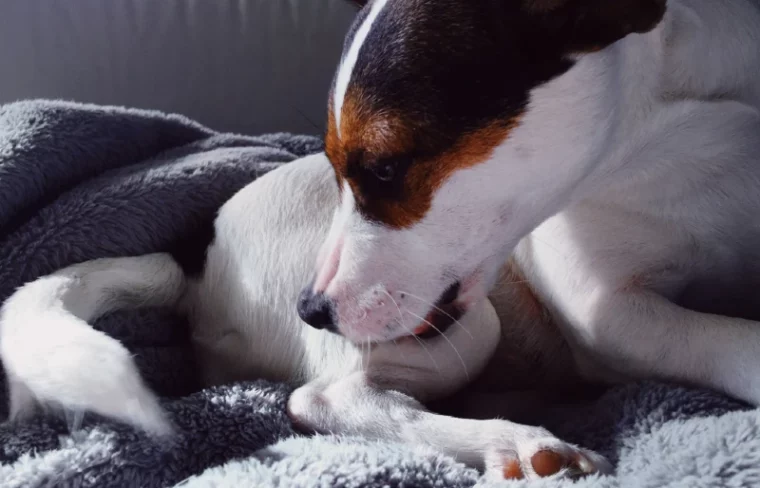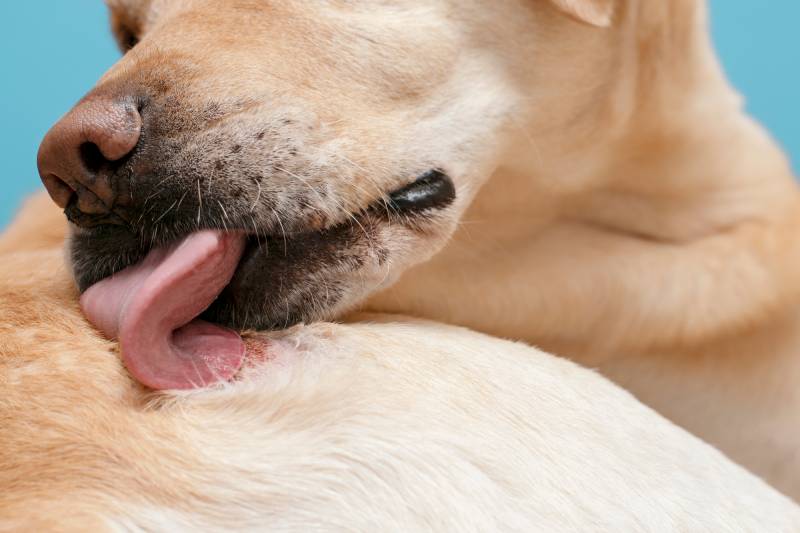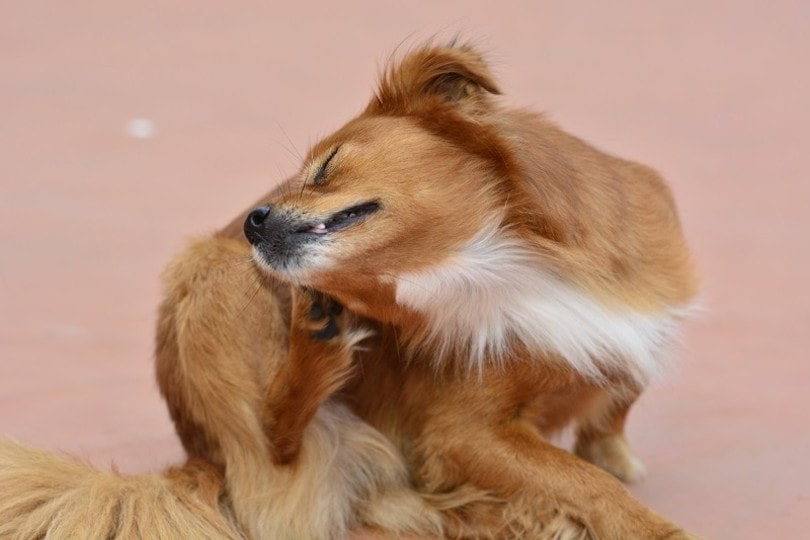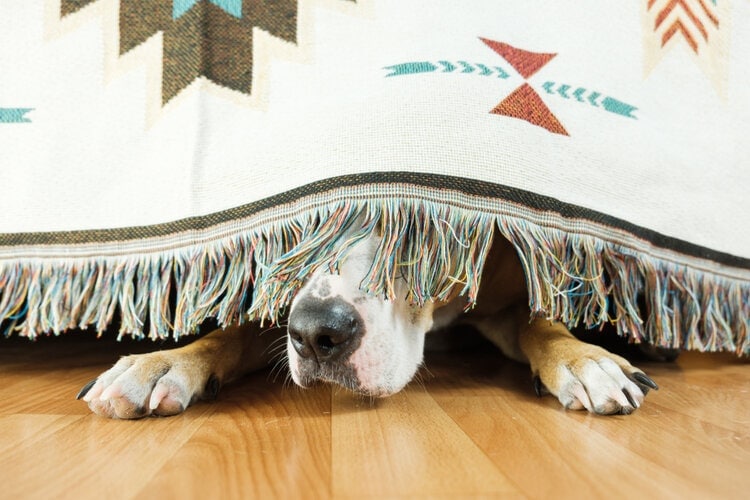
Click to Skip Ahead
A certain amount of licking is considered acceptable grooming behavior in the dog world. Dogs generally lick themselves as routine cleaning or to clean wounds. For instance, both male and female dogs may lick their genitalia after urinating to clean them. When this is the case, licking is not prolonged and only pertains to elimination. A simple sweep of the region is all that is necessary. Dogs may also lick wounds to clean away debris but many end up doing this excessively, delaying healing and contaminating open wounds. They may also lick if they’re itchy somewhere, for example on their paws.
Excessive licking is often a sign of an underlying health concern that needs addressing. Read on to find out more about why dogs lick themselves.
What Kind of Dog Licking Qualifies as Excessive?
When a dog has unfavorable effects from frequent licking, it is excessive licking behavior. This may include limping, bald spots, red patches, pimple-like lesions, dandruff, discoloration of the skin or coat, and hair loss.
While licking or grooming, some dogs may also display overt indications of discomfort. Vocalizing, moaning, whimpering, or groaning are examples of these signs. If a dog is unable to relax or sleep without being woken due to the urge to lick an area, this also is an indication of excessive licking.

Causes of Excessive Licking
The reasons why dogs lick themselves excessively are many. Your veterinarian will try to identify the underlying issue, which may be a skin ailment, pain or even a behavioral problem. You can assist your vet in determining the source of your dog’s continuous licking by bringing pictures or videos of them while they are doing so. Our canines frequently lick themselves excessively for the reasons listed below:
Skin Conditions and Infections
Dogs can get bacterial, fungal, parasitic and viral skin infections. The licking will be accompanied by skin changes such as redness, bumps, sores, crusts, flaking and hair loss. Dogs often scratch as well as lick, depending on where the sore skin is. Veterinarians will perform a comprehensive examination initially, paying particular attention to the irritated areas, then choose the best course of action based on these findings.

Allergies
One of the most frequent causes of pruritus, or itching, is allergies. Environmental and food allergies are the two main categories. In addition to licking, chewing, and scratching, pets with food allergies may also experience digestive issues. Vets diagnose skin allergies through a process of elimination and specialized tests. Luckily, there are many effective treatments available to help relieve the itch.
Pain
Veterinarians will think about arthritis, discomfort, and wounds as causes for excessive grooming and licking if there are no signs of allergies or skin infections. Dogs frequently lick their bodies’ sore spots.
Look carefully and safely for any lacerations, puncture wounds, or even tiny bug bites in the region your dog is licking. It could be very challenging to see if there is no hair loss.
Anxiety and Behavioral Issues
Excessive licking and grooming may be a behavioral issue if all medical causes, such as itching, infections, allergies, sickness, or pain, have been ruled out. Dogs’ boredom causes them to lick, groom, and itch. Try increasing your pet’s regular exercise if you notice that they often groom themselves while they are bored.
Dogs require mental stimulation as well as physical exercise. Think about using puzzles with treats hidden within or time-released treats to keep their minds active.

Should I Stop My Dog from Licking?
If your dog is excessively licking an area they can make the skin sore and infected. It is important to find out the root cause, so the underlying reason can be addressed to stop your dog from licking.
Your dog should be prevented from licking wounds, including surgical ones. Although dog saliva has a slight bactericidal effect against a few bacteria, licking introduces new bacteria into wounds and causes irritation and damage to the surrounding tissue. It can prevent wounds from healing and open up wounds.
Even though it is common for dogs to lick their genitals occasionally, it shouldn’t happen too much. Urogenital (urinary and genital) licking that is frequent and persistent can be a sign of a health problem.
Conclusion
Some dogs are neat and regularly clean up after going outside, including licking their paws. Following voiding, they also groom their genitalia. However, if the licking is persistent it is important to get them to your vet for a check over to rule out underlying medical causes. It can also result from anxiety and other compulsive habits, some dogs lick themselves when they are bored.
Keep in mind that each of our pets is unique and has a particular way of responding to the world. If you’re worried, pay attention to their signals and nonverbal cues to determine what they’re trying to tell you and seek assistance from your vet.
Featured Image Credit: Veronika Gaudet, Shutterstock








